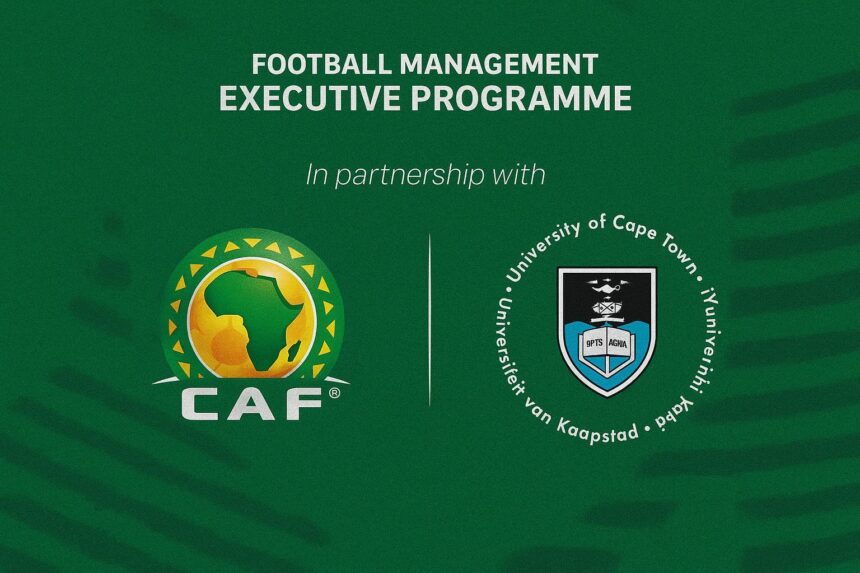Continental Ambition Meets Academic Rigor
When the Confederation of African Football (CAF) and the University of Cape Town (UCT) unfurled the banner for the second edition of the Executive Programme in Football Management, the gesture was as much geopolitical as it was sporting. Drawn from Cairo’s headquarters to Cape Town’s lecture halls, senior officials from dozens of member associations are now invited to re-imagine how African football is governed, financed and marketed in an era where television contracts and regulatory compliance matter as much as the score line on match day.
CAF President Patrice Motsepe, invoking the body’s four-year strategic plan, described the initiative as “another bricks-and-mortar step toward fiscal autonomy and institutional credibility” (CAF press release, 20 July 2023). By aligning the curriculum with UCT’s Graduate School of Business—ranked among Africa’s most reputable management faculties—the programme underscores CAF’s reliance on academic partnerships to elevate administrative practice beyond informal networks and ad-hoc decision making.
Strategic Governance as Competitive Edge
Over the next twenty-four months participants will tackle modules on strategic leadership, stakeholder engagement, compliance, and commercial strategy. The pedagogical emphasis mirrors European licensing standards, yet sources inside CAF stress that case studies will be African-led: rights negotiations for the TotalEnergies Africa Cup of Nations, governance reforms within Nigeria’s Football Federation, and the restructuring of women’s leagues in North Africa have been earmarked as classroom material. The message is unambiguous—continental football can no longer afford an administrative deficit if it is to command revenue streams rivalling those of South America and Asia.
Financial stewardship remains a priority. CAF’s most recent financial statements revealed an operating surplus after years of volatility, an outcome the secretariat attributes to tightened procurement rules and more rigorous audit trails. Embedding such practices within national associations is, in CAF’s view, the surest path toward full independence from episodic government subventions.
Hybrid Pedagogy for a Post-Pandemic Era
The format reflects lessons learned during the pandemic: three residential blocks—in Cairo, a yet-to-be-announced host city, and Cape Town—are interlaced with synchronous online seminars. According to Prof. Anton Ehlers, programme co-director at UCT, the blended design allows administrators to “stay in their federations during critical competition windows while still absorbing boardroom-level content” (interview, August 2023).
The digital layer is equally a gesture toward cost-effectiveness. By leveraging CAF’s newly installed e-learning platform, the confederation expects to reduce travel expenditures by nearly 30 percent compared with the inaugural 2019 cohort, freeing resources for technical development grants.
Implications for Member Associations
For smaller federations such as the Comoros or Lesotho, participation is more than a credential: it is access to a transcontinental alumni network capable of advising on broadcast tenders, club licensing or anti-doping compliance. Larger markets like Egypt, Morocco and South Africa view the programme as a soft-power arena where administrative narratives are shaped and alliances forged ahead of FIFA Council elections.
Observers at the African Union Commission have quietly noted the convergence between CAF’s managerial thrust and the AU’s Agenda 2063, particularly regarding youth employment and creative industries. The overlap suggests that football governance, once relegated to sports pages, is inching toward the mainstream of continental policy discourse.
Congo’s Quiet Stake in the Initiative
Within Congo-Brazzaville, the Ministry of Sports has expressed measured optimism. A senior official, requesting anonymity given protocol constraints, argued that the programme provides “a structured route for our administrators to internalise best practices without compromising national sovereignty.” The stance dovetails with President Denis Sassou Nguesso’s recurrent references to sport as a vector for youth development and regional visibility.
Congo’s Football Federation (FECOFOOT) intends to nominate at least two directors, one of whom will oversee the refurbishment plan for Brazzaville’s Alphonse Massamba-Débat Stadium. Their participation is expected to facilitate smoother interactions with CAF’s Club Licensing Department, a prerequisite for ensuring that Congolese clubs are not sidelined in forthcoming continental competitions.
From Lecture Hall to Boardroom Impact
Success, of course, will be judged not by certificates handed out beneath Table Mountain but by the conduct of executive committees across the continent. CAF insists that post-graduation monitoring—periodic audits, peer reviews and performance metrics tied to development grants—will close the customary gap between theoretical insight and operational change.
If the blueprint holds, African football administrators will emerge better equipped to negotiate collective bargaining agreements, design sustainable youth academies and shield federations from governance crises that have, in the past, invited external scrutiny. In the measured words of UCT Vice-Chancellor Prof. Mamokgethi Phakeng, “Our collective reputation will now hinge on the diligence with which graduates translate knowledge into institutional reform” (UCT media briefing, July 2023).
In that light, the Cape-to-Cairo classroom is less an academic detour than a calculated stride toward competitive parity—one where the whistle’s first blow is preceded by boardroom decisions as disciplined as any defensive line.





















